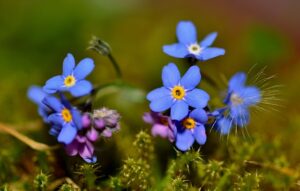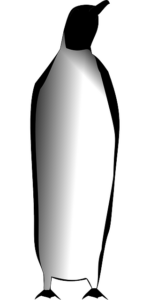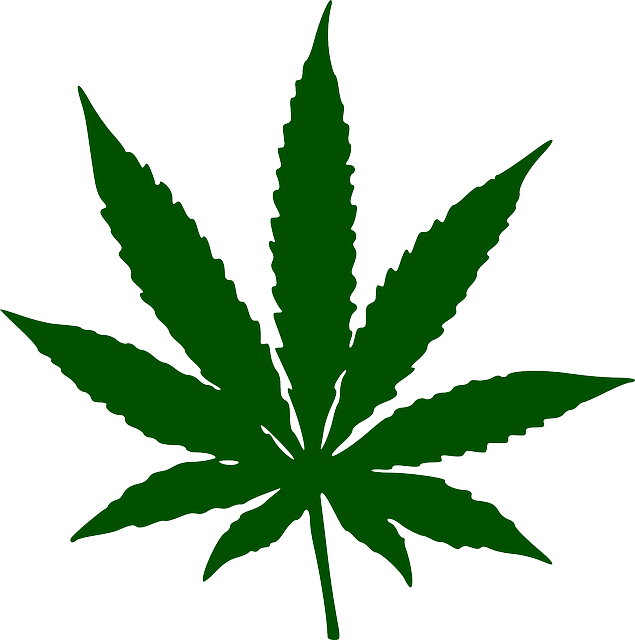
THCA (tetrahydrocannabinolic acid) and CBD (cannabidiol) are non-psychoactive cannabinoids found in the Cannabis sativa plant with distinct potentials for improving sleep quality. THCA is a precursor to THC and has been studied for its sedative effects, which may help users transition into restful sleep by promoting relaxation and addressing pain or discomfort without impairing cognition. CBD, known for its calming influence, can alleviate anxiety and pain, indirectly improving sleep through its interaction with the endocannabinoid system. Both compounds engage with this system differently, and their use for sleep enhancement is an area of growing research interest. THCA's direct impact on the sleep-wake cycle and CBD's influence on sleep based on dosage and individual factors present unique options for those seeking natural sleep aids. When considering THCA vs CBD for sleep, individuals should evaluate personal needs, optimal dosing, and legal regulations to ensure safe and effective use. The comparison between these two cannabinoids for sleep improvement is an evolving field in cannabinoid research, with each offering benefits that can complement different sleep challenges.
Discover the transformative potential of THCA (Tetrahydrocannabinolic Acid) within the realm of restful slumber. This comprehensive article delves into the multifaceted relationship between THCA flower and sleep, offering a scientific lens on how this natural compound can serve as an effective sleep aid. From comparing its efficacy to CBD in promoting tranquil nights to elucidating the role of terpenes and the entourage effect, we explore the various aspects that contribute to THCA’s influence on sleep quality. We also provide insights into optimal dosing, legal considerations, strain selection, and integrative practices for those looking to enhance their sleep naturally. Join us as we navigate the benefits of THCA flower as a viable alternative to pharmaceutical sleep aids, all while addressing common concerns and anticipating future research advancements in this promising field.
- Unveiling THCA: The Natural Sleep Aid
- THCA vs CBD: A Comparative Analysis for Restful Slumber
- The Science Behind THCA and Its Sleep-Inducing Properties
- Understanding the Entourage Effect in Cannabis and its Impact on Sleep
- How THCA Flower Influences Sleep Quality Compared to Other Cannabinoids
Unveiling THCA: The Natural Sleep Aid
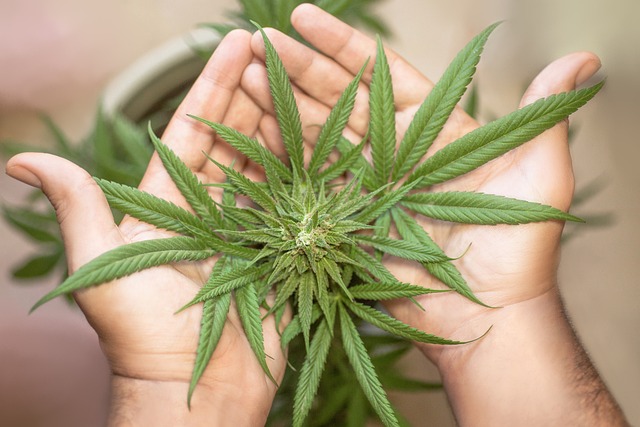
Delta-9-tetrahydrocannabinolic acid, or THCA, is a natural cannabinoid found in the Cannabis sativa plant that has garnered attention for its potential therapeutic properties. Unlike its well-known counterpart, delta-9-tetrahydrocannabinol (THC), THCA is non-psychoactive, making it an attractive option for those seeking relief without the high associated with cannabis consumption. Studies have indicated that THCA may have a calming effect on the body and mind, which can be particularly beneficial for individuals experiencing sleep disturbances. This natural compound is believed to interact with the body’s endocannabinoid system, influencing the regulation of sleep patterns and promoting restful nighttime rest. When comparing THCA to CBD for sleep, it’s important to note that both compounds have unique mechanisms of action, but THCA’s interaction with the CB1 receptors in the brain is thought to be particularly conducive to promoting sleep. Unlike CBD, which can have varying effects on sleep depending on the dosage and individual physiology, THCA’s influence on the sleep-wake cycle appears more direct, potentially due to its affinity for the CB1 receptors that regulate sleep. This makes THCA a promising natural sleep aid, with ongoing research continuing to shed light on its efficacy in this area. Users interested in exploring THCA for sleep benefits should consider the optimal dosage and method of consumption based on their specific needs and local regulations.
THCA vs CBD: A Comparative Analysis for Restful Slumber
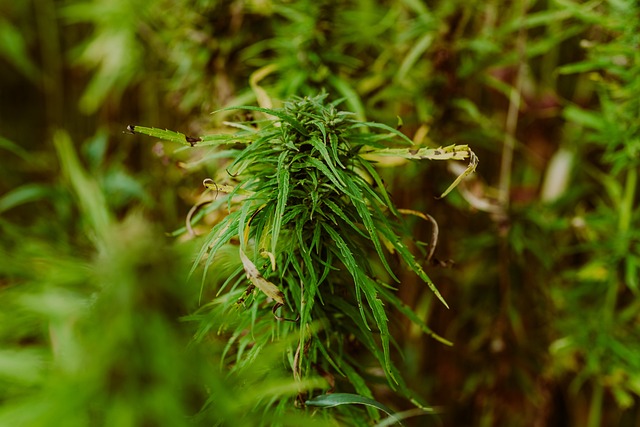
THCA, or tetrahydrocannabinolic acid, and CBD, or cannabidiol, are two prominent compounds found in the Cannabis sativa plant, each with distinct effects on the human body. As one explores the realm of cannabinoids for restful slumber, understanding the nuanced differences between THCA versus CBD becomes paramount. Unlike its psychoactive counterpart, delta-9-THC, THCA remains non-psychoactive and exhibits potent anti-inflammatory properties. This compound can potentially offer relaxing effects that may aid in the onset of sleep by addressing pain and discomfort, which are common hindrances to restful sleep.
On the other hand, CBD is renowned for its calming and soothing properties without the psychoactive impact associated with THC. Evidence suggests that CBD may interact with the body’s endocannabinoid system, influencing the regulation of sleep patterns and promoting a state conducive to restful slumber. Both THCA and CBD have been studied for their sleep-promoting benefits, yet they offer different experiential outcomes. For those seeking the sedative properties of cannabis without psychoactive effects, THCA may be the preferred option due to its ability to engage with the body’s CB1 receptors in a way that promotes relaxation without impairing cognitive functions. Conversely, individuals who prefer to avoid any mind-altering substances might opt for CBD, which can provide a sense of tranquility and ease the transition into sleep while maintaining clear-headedness. When considering THCA vs CBD for sleep, it is essential to evaluate personal preferences, local regulations, and the specific sleep challenges one aims to address.
The Science Behind THCA and Its Sleep-Inducing Properties
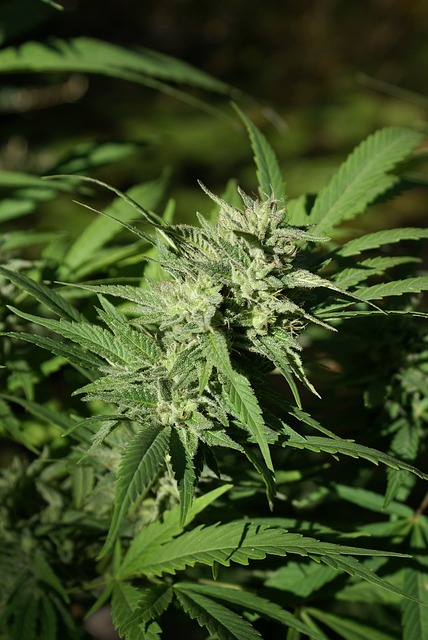
THCA, or tetrahydrocannabinolic acid, is a non-psychoactive cannabinoid found in the Cannabis sativa plant. Unlike its more famous counterpart, THC, THCA does not induce intoxication but has been the subject of increasing interest for its potential therapeutic properties, including its sleep-inducing effects. Studies suggest that THCA interacts with the body’s endocannabinoid system by binding to both CB1 and CB2 receptors, which may influence sleep regulation and promote relaxation. This interaction is thought to enhance the feeling of sedation, making THCA a promising compound for those seeking aid in falling asleep naturally.
When considering cannabinoids for sleep, the comparison between THCA vs CBD is particularly relevant. While both compounds have garnered attention for their potential benefits in improving sleep quality, they differ significantly in their effects. Unlike THCA, CBD (cannabidiol) is non-psychoactive and does not cause sedation; instead, it promotes a sense of calm without the drowsiness. Research indicates that CBD may help alleviate anxiety and pain, which can indirectly support better sleep. However, for those specifically looking to address sleep disturbances, THCA’s direct interaction with the receptors involved in regulating sleep architecture might be more beneficial. Users often report that strains high in THCA can lead to a more restful and deep sleep, making it a preferred choice for those targeting sleep-related issues.
Understanding the Entourage Effect in Cannabis and its Impact on Sleep
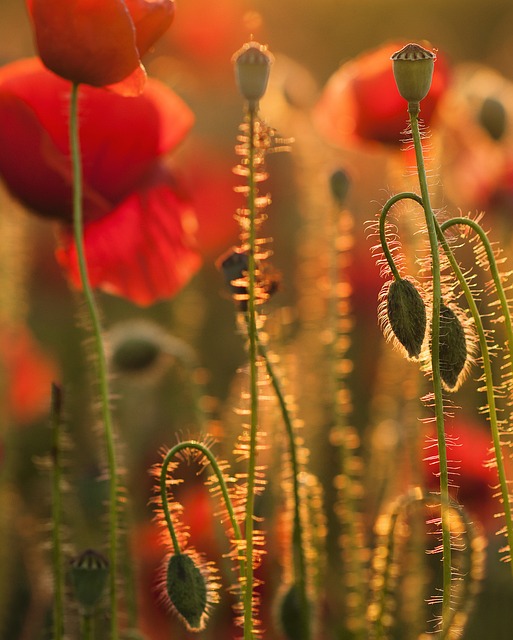
THCA, or tetrahydrocannabinolic acid, is a cannabinoid found in raw cannabis plants that undergoes decarboxylation to transform into THC upon heating. Its potential effects on sleep and overall well-being are subjects of growing interest within the realms of botanical medicine and therapeutic research. The Entourage Effect refers to the combined impact of all the cannabinoids, terpenes, flavonoids, and other elements in cannabis interacting synergistically. This synergy can significantly influence physiological processes like sleep, distinguishing the effects of THCA from those of CBD, another major cannabinoid with well-documented sedative properties.
Research suggests that THCA may possess sedative qualities, contributing to a restful night’s sleep by interacting with the body’s endocannabinoid system. This interaction can modulate sleep patterns and promote relaxation, which is why THCA vs CBD for sleep is an area of focus for those looking for natural alternatives to manage insomnia or improve overall sleep quality. The Entourage Effect enhances these properties, as the presence of other cannabis compounds can amplify the sedative effects of both THCA and CBD. This holistic approach to understanding cannabinoids and their interactions can lead to more effective and tailored therapies for sleep disturbances. Understanding how different cannabinoids like THCA and CBD affect sleep within the context of the Entourage Effect is crucial for optimizing their use in various sleep-related conditions.
How THCA Flower Influences Sleep Quality Compared to Other Cannabinoids
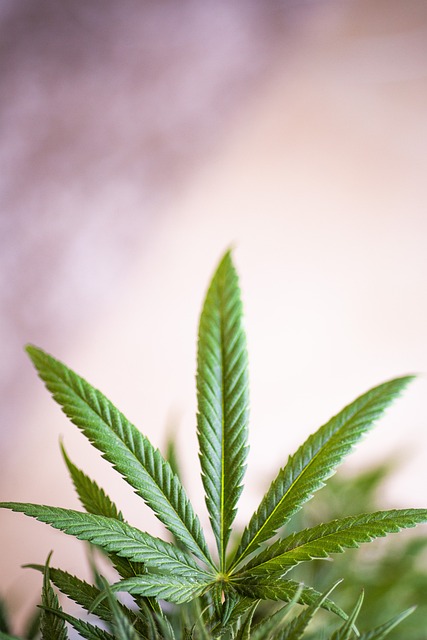
delta-9-tetrahydrocannabinolic acid (THCA) and cannabidiol (CBD) are two of the most prevalent cannabinoids found in the Cannabis sativa plant. THCA is the raw form of THC, which becomes psychoactive when heated, while CBD is non-psychoactive. When considering their influence on sleep quality, both compounds offer distinct benefits but interact with the body differently.
THCA is often associated with a more sedating effect compared to its psychoactive counterpart, delta-9-tetrahydrocannabinol (THC). Users often report feelings of relaxation and calmness without the cognitive impairment that can sometimes accompany THC use. This sedative quality may be particularly beneficial for those seeking improved sleep quality. In contrast, CBD has gained popularity for its ability to promote relaxation and reduce anxiety without the intoxicating effects associated with THC. It interacts with the body’s endocannabinoid system, which plays a role in regulating many physiological processes, including sleep. Research suggests that CBD may help alleviate insomnia and improve sleep by reducing stress and promoting relaxation, making it a viable option for those sensitive to THC or seeking an alternative to pharmaceutical sleep aids. When comparing THCA vs CBD for sleep, individuals often consider factors such as personal tolerance, desired effects, and the legality of the cannabinoid in their region. Both compounds have been reported to influence sleep quality, but their mechanisms and user experiences differ, offering potential choices for those looking to enhance their sleep through cannabinoids.
theta-9-carboxylic acid (THCA) has emerged as a notable cannabinoid for those seeking restful slumber, offering distinct benefits over CBD in the realm of sleep quality. Our exploration has revealed the intricate science behind THCA’s properties, which contribute to its efficacy as a natural sleep aid. The entourage effect, when considering various cannabinoids together, also plays a pivotal role in optimizing sleep. For readers interested in THCA vs CBD for sleep, this article has provided a comprehensive analysis to guide your choice. In conclusion, the potential of THCA flower to enhance sleep quality is promising, offering an alternative to traditional sleep aids with its natural and plant-based approach. As research continues to evolve, understanding the nuances between THCA and CBD in promoting restful sleep becomes increasingly clear, emphasizing the importance of informed decisions when incorporating cannabinoids into one’s sleep regimen.

